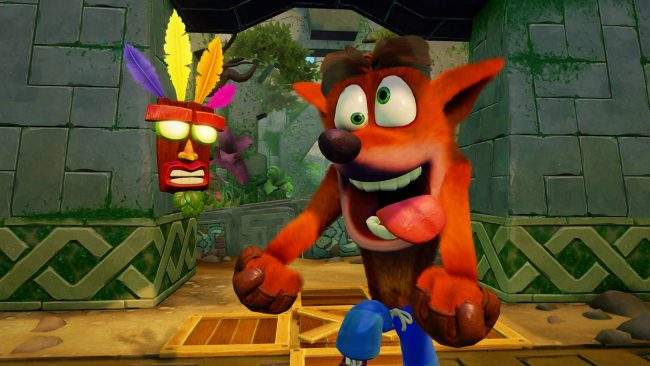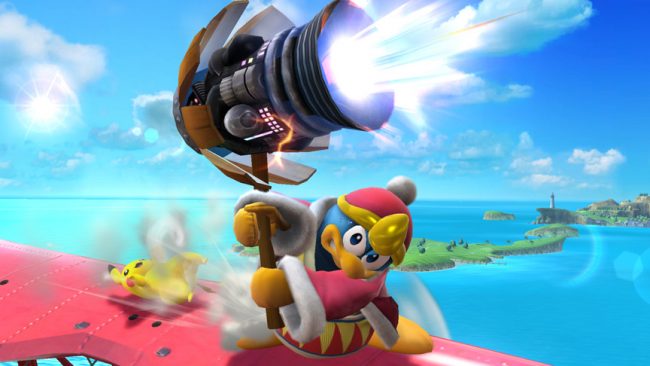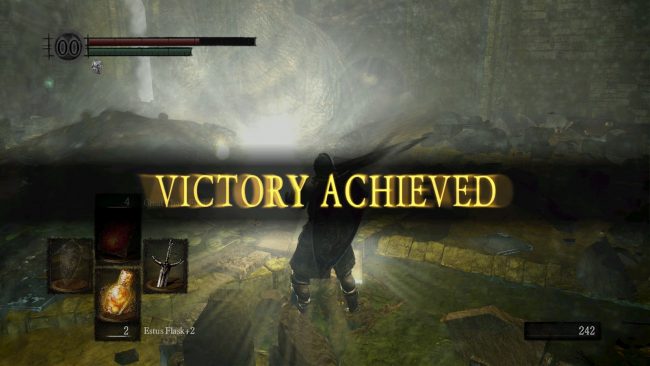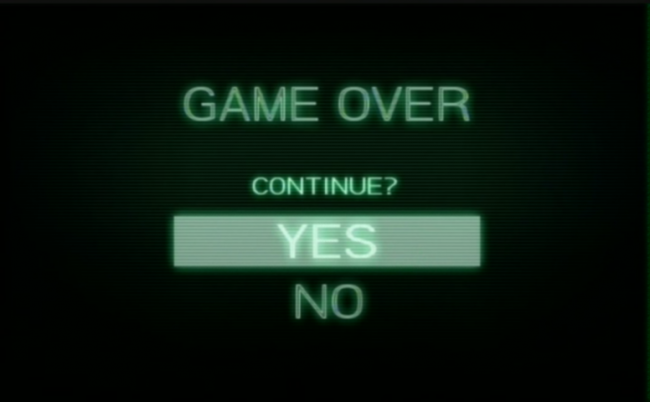
Humanity’s most powerful weapon against the machines will be our undying anger. There was never any hope for smart tactics or on-the-fly thinking when we can barely process what we’d like to eat. No, we flesh bags must develop our skills elsewhere, and what else melts steel more efficiently than boiling blood? I’ve witnessed the brutality of our future soldiers in the field, smashing monitors and tables on the front line each and every day. No screen is safe when raging gamers are afoot, and if we do not make use of their unbridled passion, we risk Skynet all over again.
There are few among us who haven’t experienced gamer rage. Not just the massive fits of anger that result in broken keyboards, I’m talking about when someone gets angry enough to warrant minor concern. Someone getting worked up over a game seems off, mainly because this dude isn’t in any peril but acts as though their entire professional reputation is on the line. If you lose, that’s about it; You can just try again later, even in eSports (although it might not be a good idea to tell your boss that you’ve turned into a filthy casual). There’s nothing on the line, no life-or-death score to settle, but you wouldn’t guess it from your next door neighbour’s screams.

I think a lot of us feel rage just looking at this guy
Anger is one of the core emotions of the human experience. I’m not just saying that for hyperbole, it’s because anger is a fundamental emotion as classified by psychological theories. Disciplines like acting, art, biology and even engineering recognise the importance of anger as an emotion and its expression. Trying to conjure up an image of the world where anger didn’t exist would be like proving the Birch and Swinnerton-Dyer conjecture. I’m willing to bet you can’t do it. Anger exists, and video games sure as hell bring out our angriest tendencies.
Games can be frustrating experiences, and because of that, anger can emerge. You’ve probably experienced the frustration that comes from not being able to beat that one god damned level or getting sniped again. Most of us would shrug off these feelings, but other people will vent their frustrations out through whatever means are available. Shouting, slapping the desk, getting their thoughts into chat, whatever tickles their fancy at that moment and gets the job done. While anger is certainly annoying to deal with, rage takes these responses one step further.

ACTIVATE THE RAGE HAMMER!
Where the savvy rager shouts into a muted mic, the untethered Kratos isn’t concerned with who’s in the crossfire. We’re no longer dealing with simple anger anymore; we’ve entered a full blown rage. Rage is more of a response than an emotion, categorised by intense, violent reactions to events. Think of the difference between someone aggressively telling you to do something versus mindlessly shouting over VOIP that his team would be better composed of rotting pineapples. Rage is strangely common in games, especially anything team-based like LoL or Overwatch, so much so that there are guides to help you prevent it. The reason as to why this occurs isn’t all that mysterious, though, and it all has to do with how we process our thoughts.
Playing a game involves decision-making, rational thought and information analysis. The problem is that we are not in control of our responses to that information, nor do we remain rational in the face of undesirable circumstances. When presented with information that ticks us off in the right way, our amygdala (responsible for our emotions, fight-flight response, etc.) takes over the brain. If you hear a funny joke, you can’t help but laugh. If your teammate dies again, you can’t help but get angry. What ticks us off tends to be different for different people, but the cause of these hijacks is fairly common.

There it is. The source of all rage on the face of the planet.
Comedy emerges when we subvert expectations, and rage occurs through the same mechanism. Inside each of our minds is a set of personal beliefs about aspects of the world called a schema. The thing is, us humans have developed shortcuts in our thinking in the form of stereotypes and heuristics. We blanket our world view in assumptions like, “These players are worse than me,” and fabricate reasons to agree with this belief. When we are proven wrong, endangering the validity of the schema we have created, the amygdala kicks in to defend it in the same way we would attack a bear. But why not respond in excitement at learning new things or humour at being proven wrong? Well, our brains aren’t very good at interpreting things.
Experiencing emotions comes in two stages. First, your body reacts to the stimuli it’s been presented on a subconscious level. After that, your brain can start to interpret what’s going on and label whatever sensations are being experienced. Games, while presenting no real threat to the player, create many of the same sensations as a threatening situation. Intense games can get the heart pumping and nerves tingling, but it’s not until we label these feelings that we arrive at rage. We could just as easily interpret these responses as excitement or joy, but our brains take shortcuts, remember? Anger is a universal emotion that we experience, so a rager’s brain will interpret ambiguous situations as rage-inducing just because it’s what their brains default to. It’s a little weird to think that the brain would default to anger of all things, but that’s because raging is a pleasurable activity.

Raging!? Pleasurable?!? Don’t take our word for it, just ask this guy!
Believe it or not, it feels good to shout at that stupid golf ball that won’t go in the frakkin’ hole. Venting your feelings in a less than silent fashion releases a whole bunch of neurotransmitters in your brain. At first, adrenaline will be released to pump your heart faster and get you ready for a fight. You’ll feel powerful, driven and focused, but adrenaline also makes you shaky and inhibits rational thinking. None of those side-effects are good for video games, which might make you think that your brain would stop using this response because it only leads to losing. The raging itself isn’t what leads to losing your cool again and again, though, it’s what happens after the rage.
When your brain thinks the fight is over and done with, dopamine is released into your system to calm your nerves. Dopamine is probably a familiar neurotransmitter because it’s released in so many circumstances to induce a pleasurable feeling. You’ll get a hit of D whenever you do exercise, have a beer or consume any number of drugs that are banned from pharmacies. It’s released after beating a huge boss too, be it Bowser or your homework. That sensation of relief after a long period of tension is what dopamine is all about, and it’s what gets released after a bout of rage.

Aw yeah, that’s the stuff
After screaming at the monitor, the rager’s brain will come down from the adrenaline high with a hit of dopamine. As it just so happens, dopamine plays a key role in rewarding behaviour. If you do something and get a reward, it would be to your advantage to do it again, right? This is why people who get angry at games seem to get angry almost without trying. It’s not that getting their rage on is the only way to enjoy the game; it’s just second-nature to feel angry because their brains are getting rewarded along the way. This is a good thing, though, because it gives the rager a reason to keep coming back.
People will come back to games to get that same dopamine hit, even if the game infuriates them. Anger drives us, and rage is an extension of that same motivating sensation. This is one of the reasons why games can be so addictive when you’re losing. You want to beat the final boss to get that dopamine hit, but when frustration hits and you feel the rage, a smaller dopamine hit will make you want to come back. Until that dopamine stream runs dry, you’ll keep coming back, again and again, to prove that you are, indeed, good at games. You’ll receive a big hit of dopamine, interpret that rage as giving you the edge you needed to beat the boss and then repeat the cycle of rage for more games to come.

Of course I want to continue. What kind of stupid question is that!? Screw you and your judgemental hue.
Rage is a strange motivator when it comes to games. Losing your cool can help bring you back to playing a game while also making it that much harder to achieve anything in the first place. A good dopamine hit after your head goes red also makes raging a fun activity, and I’m sure anyone who regularly engages in raging can say that it’s more satisfying to shout than pout. So now the only question remaining is how to capitalise on this fury? Duh, rage grenades. Weaponised canisters of gamer sweat with so much salt that it will immediately rust our steel-boned nemeses. The machines never stood a chance.











